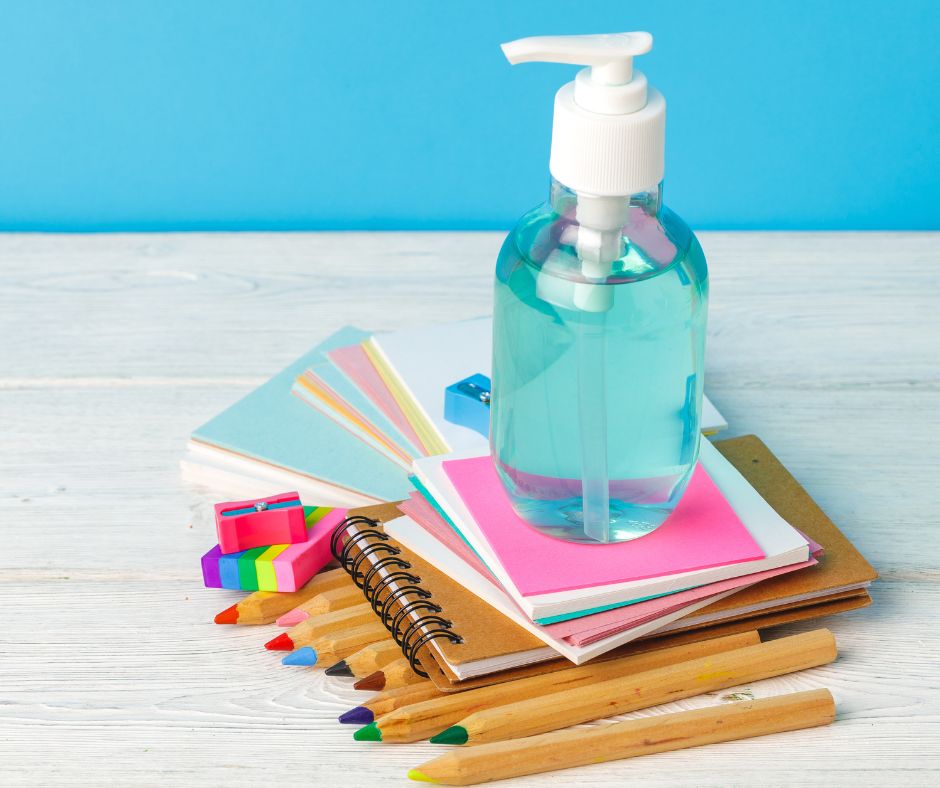Preventing the Spread of Germs in Schools: Tips for Teachers, Students, and Parents

As our local communities start a new year of school, supplies and schedules aren’t the only concern. Schools can be a breeding ground for germs as students and teachers share space in classrooms, bathrooms, lunchrooms, and hallways. Sickness can spread quickly, disrupting daily schedules, and causing stress for students, teachers, and even parents.
As we prepare to send our children back to school, it’s crucial that we employ strategies to prevent the spread of germs. Here are some practical tips to keep our schools – and our communities – safe and healthy this year.
Wash Your Hands
We’ve heard it before, but it bears repeating – washing your hands does wonders to prevent the spread of germs. The CDC advises scrubbing your hands with soap and water for at least 20 seconds, roughly the time it takes to sing the “Happy Birthday” song twice. This practice should be followed before eating, after using the restroom, and after sneezing or coughing.
For those times when soap and water are not readily available, using hand sanitizers is a good backup. Schools should ensure hand sanitizer stations are available in high-traffic areas, and parents can equip their children with small, personal bottles of sanitizer they can stow in their desk or bag.
Cover Your Mouth
Covering coughs and sneezes with a tissue or the inside of your elbow is another important habit to teach and reinforce. This practice significantly reduces the number of germs that get onto hands, which can then spread to others or onto surfaces.
Sanitize Shared Surfaces
Speaking of surfaces, regular disinfection is key. Teachers should have access to disinfectant wipes to clean high-touch surfaces such as desks, door handles, and shared equipment multiple times throughout the day. Parents can help out by providing disinfecting wipes and encouraging their children to clean personal items like lunch boxes and water bottles frequently.
Be Wary of Water Fountains
While we’re talking about water bottles, let’s touch on drinking fountains. Schools are required to provide clean and accessible water to all students, but shared fountains are a major source of germs. It’s best to carry a personal water bottle filled with fresh water you can sip on through the day. When it’s time for a refill, fountains are fine – but avoid touching the spout and wash your hands well when you’re done.
Stay Home When You’re Sick
Last, but certainly not least, encouraging sick students to stay home is vital. There’s often pressure to attend school even when ill, but this can inadvertently lead to others becoming sick. Parents should keep children at home when they’re unwell and teachers should support this decision.
Get Your Vaccines
Get your flu and covid vaccines! While immunizations don’t always keep you from getting sick, they help prevent the spread of contagious germs and reduce the risk of serious illness. Teachers and students should get a flu shot each year and other vaccines as recommended by your doctor.
When it comes to germs in schools, sharing isn’t caring. Students and teachers are bound to get sick at some point, but using smart health strategies can help prevent the spread of germs and keep illness to a minimum. If sickness does strike this year, make Urgent Care of Fairhope your first choice for fast and easy healthcare close to home. With extended hours, short wait times, and a dedicated team of professionals, we can treat your illness quickly so you can spend less time in the clinic and more time in the classroom.
Search our Blog
Recent Posts
Common Summertime Illnesses in Children (and How to Handle Them Like a Pro)
Sunshine, splash pads, and… stomach bugs? Yep, summertime isn’t just prime time for popsicles and pool days—it’s also peak season for some common childhood illnesses. If your kid suddenly swaps cannonballs for couch time, you’re [...]
Ticked Off: Your Guide to Staying Bite-Free in Baldwin County
Ah, summer in Alabama—where the sweet tea flows, the sunsets dazzle, and the ticks... well, they’re uninvited guests at every outdoor gathering. But fear not! With a sprinkle of humor and a dash of vigilance, [...]
2025 Summer Camp Guide: Eastern Shore, Alabama
School’s out for summer! While the kids are rejoicing, we know many parents are picturing long days of screen time, junk food and boredom. If you haven’t scheduled a summer camp experience for your [...]
Easy, Nutritious Summer Treats Your Kids Will Actually Eat
Summer break in Fairhope means beach days, splash pads, and the inevitable chorus of "I'm huuuungry!" approximately every 17 minutes. With schedules all over the place and kids burning energy faster than your phone battery [...]
Memorial Day Safety: Tips for a Healthy Start to Summer
Memorial Day weekend is that magical time when we dust off the grill, break out the beach chairs, and officially declare summer open for business on the Eastern Shore. At Urgent Care of Fairhope, we [...]
Low-Carb Snacks for Diabetic Kids: Tasty, Fun, and Blood Sugar-Friendly
Finding the right snacks for kids with Type 1 diabetes can feel like a challenge. You want something delicious, but also something that won’t send their blood sugar on a rollercoaster ride. The key? Low-carb, [...]

